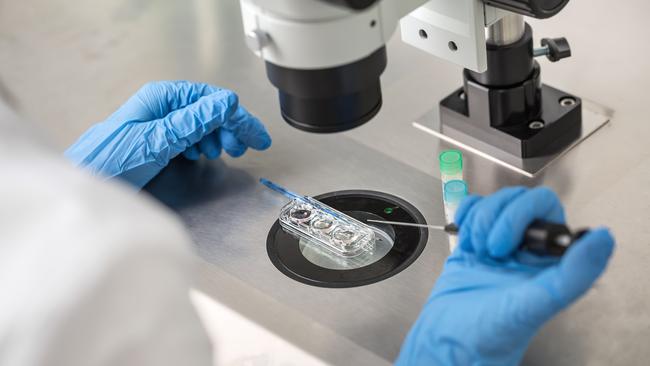IVF ‘alters evolution’, expert warns
Allowing “disease prone” to conceive artificially may change the human genome, expert warns.

Artificial fertilisation is altering human evolution by letting the “subfertile” or “disease prone” have babies when nature would normally stop them, a leading fertility researcher has claimed.
The procedure means defective genes that would normally die with the carrier are instead transmitted to future generations, Dr Hans Hanevik will tell the European Society of Human Reproduction and Embryology (Eshre) in Vienna.
Eventually, he suggests, the birth of millions of babies through in-vitro fertilisation (IVF) could alter the human genome and the evolution of the species.
The babies are likely to carry the genes that made their parents subfertile and may need similar help when it is their turn to have children, he argues. As they reproduce, defective genes will spread.
“In accordance with the principle of evolution, subsequent generations will thus be genetically adapted to an environment in which reproduction is increasingly dependent on technological intervention,” Hanevik writes in an abstract for the conference.
About 300,000 babies have been born through IVF in the UK since 1991. The technique accounts for just over one in 40 of the 750,000 babies born annually in the UK and a similar proportion in other western countries - enough to have a measurable impact, he says.
“IVF is not just a treatment for infertility, but also a technological intervention at the point in a human life cycle where natural selection operates at its strongest,” writes Hanevik, who heads the fertility department at Norway’s Telemark Hospital. “Although it is a great medical achievement, it circumvents a range of reproductive barriers.”
But Gill Lockwood, medical director of Midland Fertility Services, the first UK clinic to achieve live births from the mothers’ own eggs, said many couples who struggled to conceive were not genetically compromised but had “plumbing” problems.
“Women may have fallopian tubes blocked by appendicitis and men may have undescended testicles or have had a vasectomy. IVF can overcome these problems. Even if they do have gene problems is that a reason to stop them being parents? IVF can bring delight and joy to people who finally get a baby - and to the siblings, grandparents, aunts, uncles and so on.”
The growing need for IVF is shown by data from the Human Fertilisation and Embryology Authority, the UK watchdog. It found that in 2017 nearly 55,000 patients had 75,000 treatments, with 93 per cent having basic IVF. About 22 per cent resulted in live births - a low success rate linked to the genetic defects that cause infertility.
Hanevik stresses he is not criticising IVF, but says there should be more discussion about its effects.
In another paper he says the long-term implications of IVF may have received limited attention because of a reluctance to apply an evolutionary perspective.
“To point out that IVF may favour disease-prone individuals or lead to reduced fitness over generations could surely be provocative, but is worth considering.”


